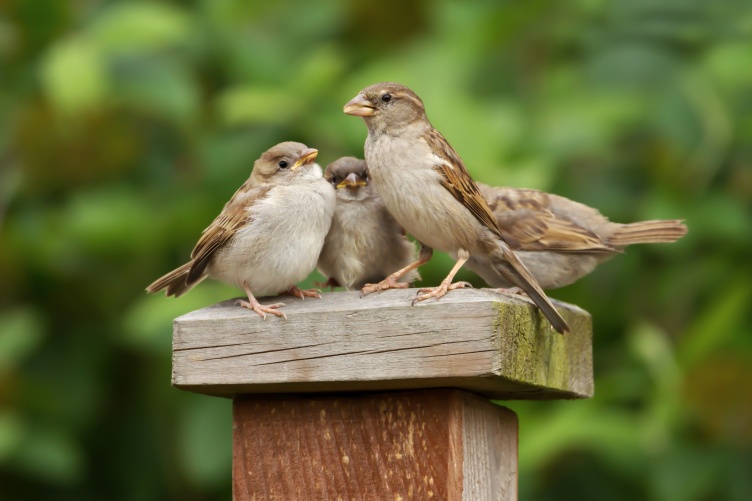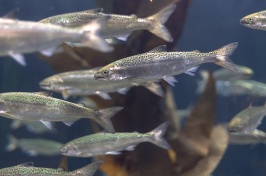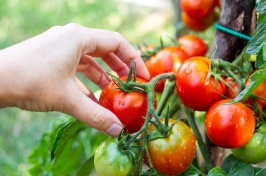NH Agricultural Experiment Station
Can Birds Spread Harmful Bacteria on Dairy Farms?
UNH scientist Andrea Ayala explores how small birds may spread bacteria on dairy farms, with potential consequences for both herd and human health. Read More-
12/10/25
Smarter Feed, Stronger Returns for New Hampshire Fish Farmers
Karolina Kwasek is researching ways to make fish nutrition better and more economical for the growing aquaculture industry. -
11/18/25
Can Science Keep Produce Fresh Longer?
UNH scientist Duoduo Wang researches the complex process of ripening to uncover ways to extend ripeness and reduce food waste. -
11/13/25
Sustaining Striped Bass
A study led by Adrienne Kovach pinpoints where the striped bass caught off the northeast coast originally came from. -
10/08/25
UNH and Stonyfield Organic Strengthen Partnership
The UNH Organic Dairy Research Farm entered into an agreement to sell all of its milk to Stonyfield Organic, further strengthening a long-term...
Recent Stories
-
06/04/23 - A Look at UNH’s Potentially Blight-resistant American Chestnut PlotOne of the largest remaining plots of American chestnut trees in New Hampshire is located at the UNH Kingman Research Farm. The one-acre research plot is a joint effort between... Read More
-
05/23/23 - For Young Adults, Heart Health Begins with SleepNHAES study: Poor sleep harms metabolism in emerging adults; consistently oversleeping also has adverse effects. Read More
-
05/19/23 - Exploring the Link Between Forest Biodiversity and Psychological WellbeingNHAES-supported study explores mental wellbeing in biodiverse settings, assesses if recreating in biodiverse settings helps enhance mental health. Read More
-
05/18/23 - Should You Be Topping Your Brussels Sprouts?Research led by New Hampshire Agricultural Experiment Station scientist Becky Sideman examined "topping" — or removal of the top stem — of Brussels sprout varieties grown in New... Read More
-
05/11/23 - Helping a Forest to Grow: Spreading Fungal Spores by Wind Vs. Small MammalsAn interdisciplinary team of UNH researchers recently shared their findings into how wind and small mammals—eastern chipmunks, southern red-backed voles and woodland jumping mice—... Read More
-
04/18/23 - Mapping the Value of Water Quality ImprovementsUNH researcher Wil Wollheim maps and data to new research published in the Proceedings of the National Academy of Sciences (PNAS) that looked at households' willingness to pay for... Read More
-
04/11/23 - Researchers Examine Using Flowering Plants to Attract Hover Flies for Pest ControlUNH alumni and faculty from the NH Agricultural Experiment Station conducted research on insectary plants as habitats for hoverflies, a natural pest control solution. Read More
-
04/10/23 - New Research into Potential Impacts of Beech Leaf Disease (BLD) to Begin at UNHJeff Garnas from UNH is launching a study on beech leaf and bark disease's impact on trees in eastern forests to better understand mortality patterns. Read More
-
04/05/23 - The 5 Rs of Environmentally Conscious ResearchThe Environmental Responsibility 5-R Framework (ER5F) is a tool to help scientists reduce the environmental impact of their research. ER5F stands for Recognition, Refinement,... Read More
-
02/24/23 - Monitoring Forest Edge Changes Using DronesScientists with the New Hampshire Agricultural Experiment Station (NHAES) and the UNH College of Life Sciences and Agriculture are using unpiloted aerial systems to examine how... Read More































































